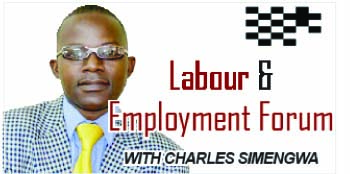 DUAL citizenship is one topic that touched raw nerves in some people back home, but Zambians living abroad have been unanimous in their praise of its introduction in the Constitution recently signed by President Edgar Lungu.
DUAL citizenship is one topic that touched raw nerves in some people back home, but Zambians living abroad have been unanimous in their praise of its introduction in the Constitution recently signed by President Edgar Lungu.
During my tour of duty in Italy and France, I have listened to the views of our brothers and sisters who have been living in these two countries, and it is evident from their excitement that they had long yearned for this cover.
In Rome, during the President’s meeting with Zambians in that country held at Ambassador Gertrude Mwape’s residence, chairperson of the Zambian community in Italy, Kennedy Katongo was effusive in his appreciation of the new provision in the Constitution.
Father Katongo said Zambians in the diaspora were excited because dual citizenship would stimulate more remittances and investments from citizens living abroad, and in turn create job opportunities for Zambians.
He said Zambians working or engaged in other ventures, and those married in other countries, had felt alienated because they could not be allowed to obtain double citizenship.
When Mr Lungu met our brothers and sisters who are based in France on Sunday, the views were the same.
Representative of Zambians who live here, Fackson Banda summed up the necessity of the dual citizenship in a single sentence: It is both a political and business decision which could stimulate more employment opportunities.
A possible future effect is that if Zambians who have settled in their adopted countries were allowed to hold double citizenship, they would be motivated to invest back home because their businesses would not be subjected to some conditions.
Another element to consider, according to Professor Banda, who now works for UNESCO, is that dual citizenship will result in a stronger diaspora voice.
In order to motivate the Zambians abroad to invest back home, it is important to ensure there is transparency in land administration, which has been a source of frustration for many.
This is only one of the many points to think about so that ‘returning’ Zambians are not viewed with suspicion.
Because of the views I have gathered from Zambians abroad, my mind has shifted to an article I read in Diaspora for Development in Africa, which stated that migration presents significant untapped potential for development.
The diaspora of developing countries can be a potent force for development through remittances, but also through the promotion of trade, investment, and knowledge and technology transfers.
Like in Rome, the Zambian community in Paris appealed for a provision in the Constitution for them to participate in elections through their embassies.
This, they noted, is a global phenomenon especially in view of the rapid technological advancements which make voting from a distance a reality.
From where the President stands, there is a whole spectrum of businesses which the Government wants Zambians in the diaspora to explore.
He also agrees that voting through embassies is now a feasible notion
since technology has reached a new high.
Mr Lungu cited US soldiers who vote when they are on duty away from home and, that way, exercise their right to participate in elections.
He said that is an idea the Zambian Government would study for possible implementation in the future.
There are of course artificial roadblocks such as suspicion or fear in some people who hold that voting taking place in a foreign country could easily be manipulated.
This reminds me of the criticism that was foisted on us by people who argued that dual citizenship created a chance for criminal activities since those holding double cards could easily disappear across the borders and forget about Zambia after committing an offence.
Available research indicates that origin countries can strengthen diaspora ties by allowing their citizens who reside abroad to vote without returning home.
Some countries give nationals abroad voting rights, and some reserve a specific number in Parliament for diaspora representatives.
From all the issues that were discussed, the good news is that, according to Foreign Affairs Minister Harry Kalaba, the Diaspora Policy is complete and will be taken to Cabinet soon before it is tabled in Parliament.
The First Lady had a word of encouragement, too: “I am happy that with this new development, your children will be able to come back home.”
****
During my nearly two-week stay in the two European countries, I have observed that some businesses, especially restaurants, run late into the night.
I interviewed a shop keeper to find out how they have managed to operate such a system, and I was informed that shifts have worked perfectly well in most cases.
I recalled the uproar that followed a proposal to extend shopping hours in Zambia which was seen as an infringement on labour rights.
It was perhaps the manner in which the idea was communicated which resulted in the rejection of an otherwise good step since some busy people have no time to go shopping during working hours.
For those who can manage, late-closing restaurants are ideal for couples who could enjoy tranquil evenings.
There were some workers who contended that if employers were not willing to revise their duty rosters so that they come up with a reasonable work schedule that would not disadvantage the workers, it was a stillborn idea.
Dear readers, let us keep this link open as we share matters of labour and employment.
For comments, use niza12001@yahoo.com






